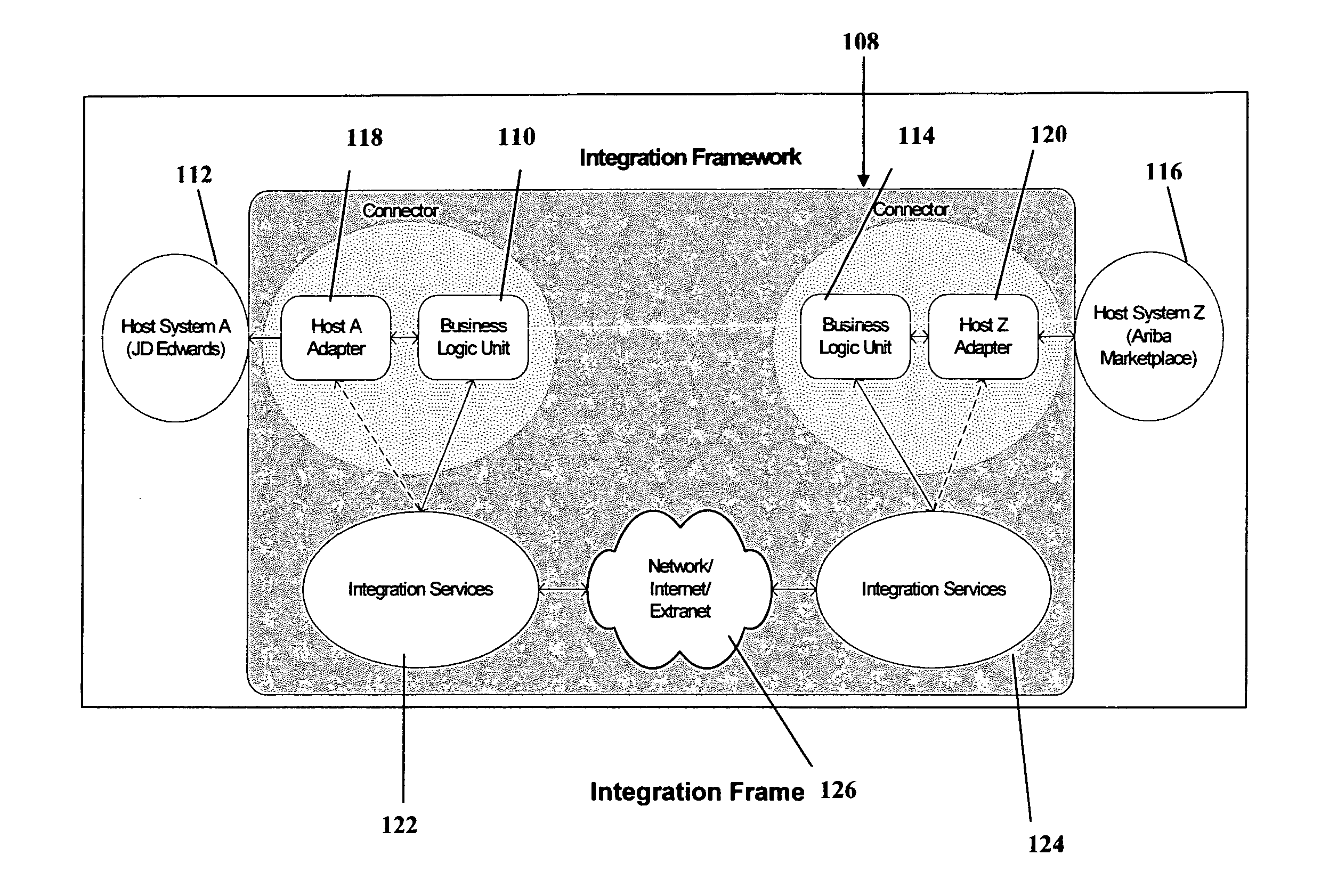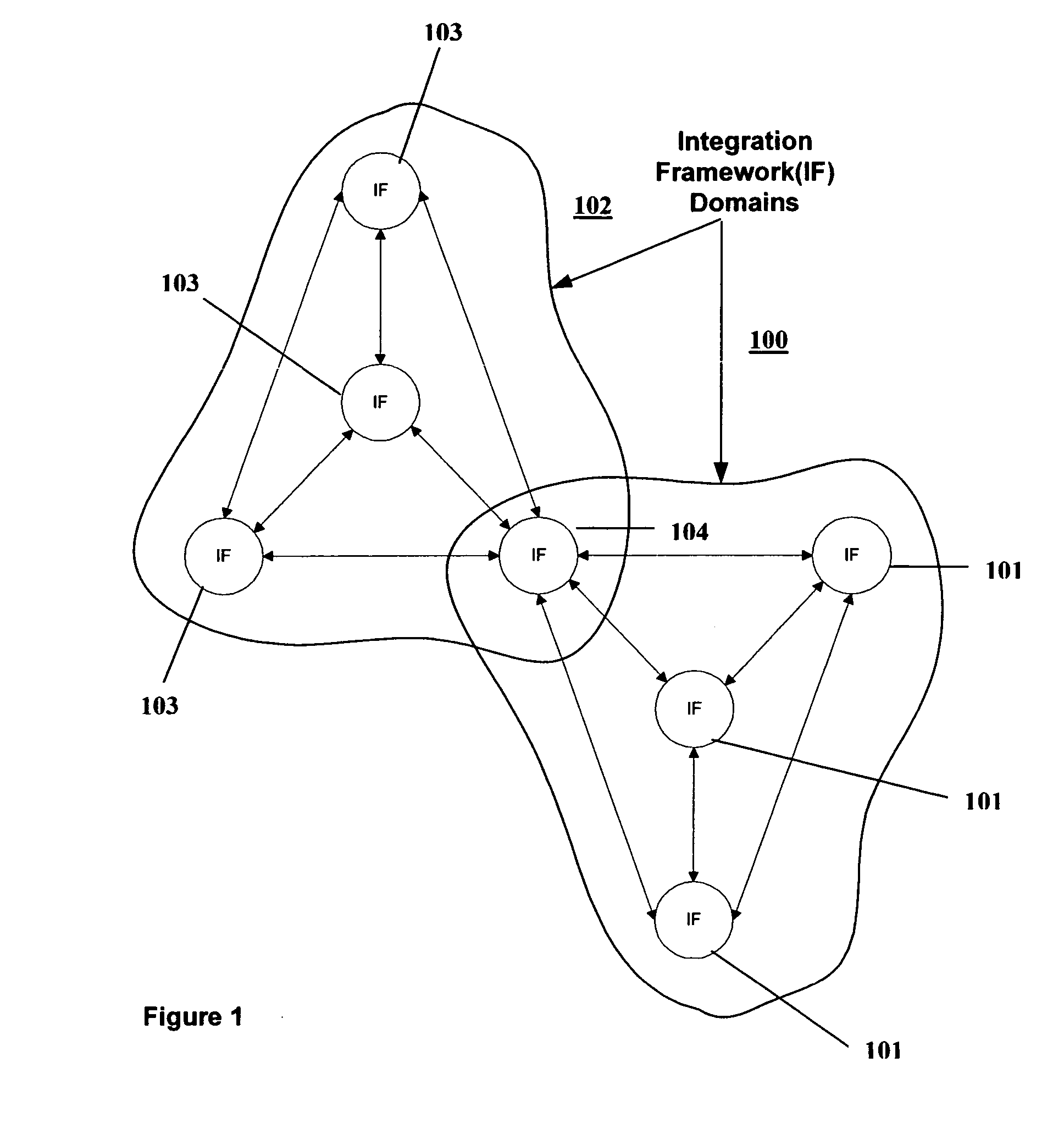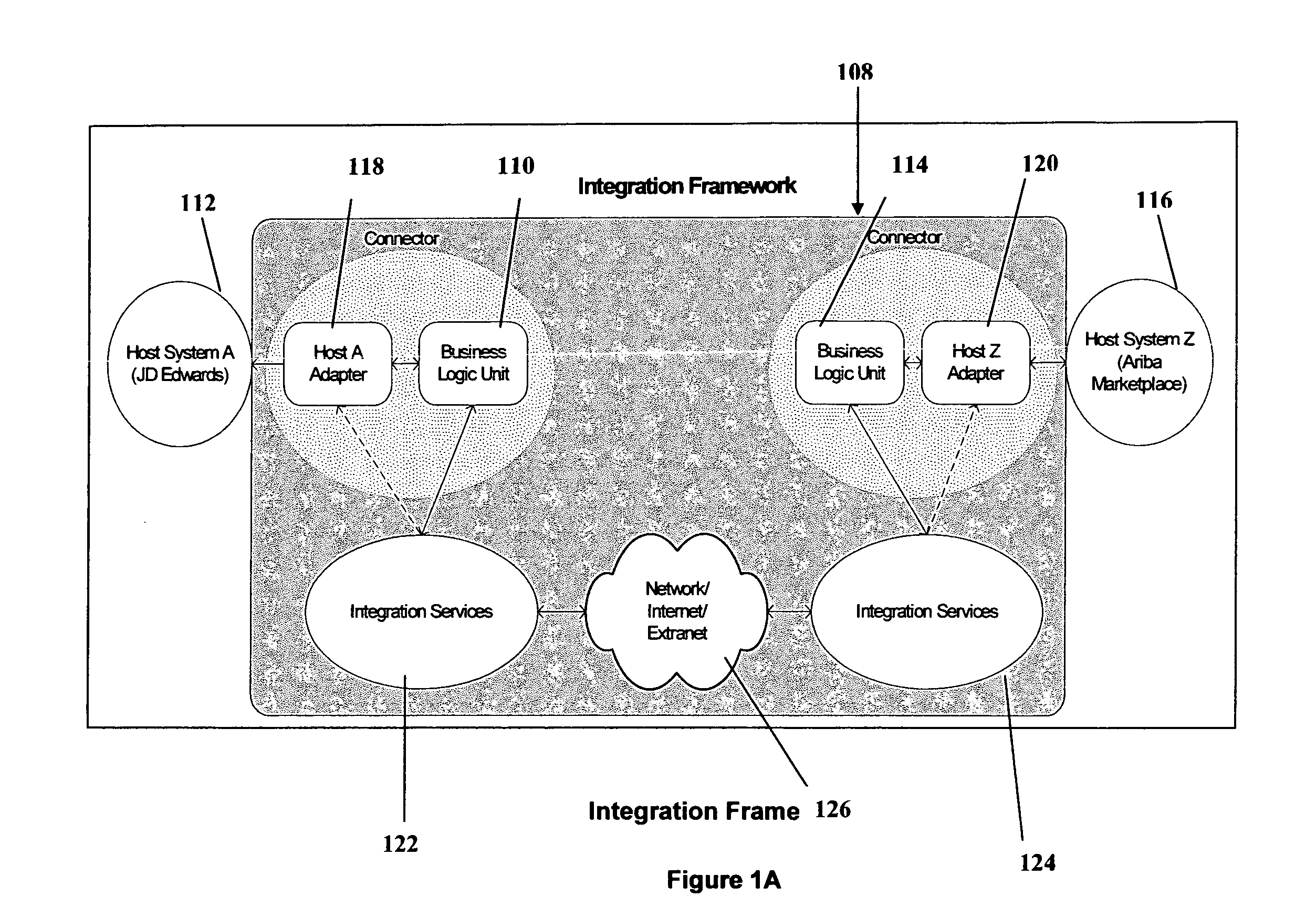Method and system for facilitating the integration of a plurality of dissimilar systems
a technology of dissimilar systems and integration methods, applied in the field of methods and systems for facilitating the integration of a plurality of dissimilar systems, can solve the problems of inconvenient integration of applications, albeit a considerable, sometimes costly challenge, adding another level of complexity to this dilemma, and significant obstacles to supply chain automation is the integration of disparate systems
- Summary
- Abstract
- Description
- Claims
- Application Information
AI Technical Summary
Benefits of technology
Problems solved by technology
Method used
Image
Examples
Embodiment Construction
Overview
[0073] The integration framework domains shown in FIG. I constitute a pure business-to-business (B2B) framework. The role of B2B is to interconnect corporate enterprises across the Internet. While Enterprise Application Integration (EAI) focuses on integrating applications within a specific corporate domain, B2B focuses on integration between corporate domains. An isolated integration framework installation operating within an enterprise provides little benefit in the way of B2B integration. While some benefit may be garnered by interconnecting back end systems within that enterprise, this type of solution is best left to EAI solutions. The true benefit of the integration framework is realized when networks of integration framework installations and / or other compatible B2B servers inter-operate across corporate enterprise boundaries to integrate the disparate systems operating within each corporate enterprise.
[0074] A collection of one or more integration framework instal...
PUM
 Login to View More
Login to View More Abstract
Description
Claims
Application Information
 Login to View More
Login to View More - R&D
- Intellectual Property
- Life Sciences
- Materials
- Tech Scout
- Unparalleled Data Quality
- Higher Quality Content
- 60% Fewer Hallucinations
Browse by: Latest US Patents, China's latest patents, Technical Efficacy Thesaurus, Application Domain, Technology Topic, Popular Technical Reports.
© 2025 PatSnap. All rights reserved.Legal|Privacy policy|Modern Slavery Act Transparency Statement|Sitemap|About US| Contact US: help@patsnap.com



